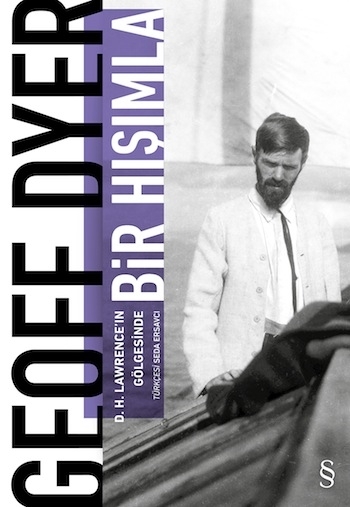What do you think?
Rate this book


250 pages, Paperback
First published January 1, 1997

The longer I stayed the more powerful it became, this feeling that I was just passing through. I had thought about subscribing to Canal Plus as a way of making myself feel more settled but what was the point in subscribing to Canal Plus when, in all probability, I would be moving on in a few months? Obviously the way to make myself more settled was to acquire some of the trappings of permanence but there never seemed any point acquiring the aptly named trappings of permanence when in a couple of months I might be moving on, might well be moving on, would almost certainly be moving on, because there was nothing to keep me where I was. Had I acquired some of the trappings of permanence I might have stayed put but I never acquired any of the trappings of permanence because I knew that the moment these trappings had been acquired I would be seized with a desire to leave, to move on, and I would then have to free myself from these trappings. And so, lacking any of the trappings of permanence, I was perpetually on the brink of potential departure. If I felt settled I would want to leave, but if I was on the brink of leaving then I could stay, indefinitely, even though staying would fill me with still further anxiety because, since I appeared to be staying, what was the point in living as though I were not staying but merely passing through?Most of this book is about Geoff Dyer’s inability to write a study on Lawrence, about his crippling writer’s block, and his weak-willed half-assed attempts at any kind of traditional goal-oriented pursuit. He travels around the world to see the places Lawrence stayed and wrote at, only to glean very little from these experiences but annoyance, illness, boredom, and injuries. It is extremely funny to read about, but also it is a perfect solution to not being able to write about Lawrence. Dyer seems to have taken Beckett’s oft-misunderstood maxim of "Try again. Fail again. Fail better" to heart. He sinks to the lowest of lows, and instead of fighting it, he sinks some more and revels in it. Or as D.H. Lawrence himself put it "Let a man fall to the bottom of himself, let him get to the bottom so that we can see who he really is."
As time goes by we drift away from the great texts, the finished works on which an author’s reputation is built, towards the journals, diaries, letters, manuscripts, jottings. This is not simply because, as an author’s stature grows posthumously, the fund of published texts becomes exhausted and we have to make do not only with previously unpublished or unfinished material but, increasingly, with matter that was never intended for publication. It is also because we want to get nearer to the man or woman who wrote these books, to his or her being. We crave an increasingly intimate relationship with the author, unmediated, in so far as possible, by the contrivances of art. A curious reversal takes place. The finished works serve as prologue to the jottings; the published book becomes a stage to be passed through -- a draft -- en route to the definitive pleasure of the notes, the fleeting impressions, the sketches, in which it had its origin.And later, he draws the same conclusion about his own book:
If this book aspires to the condition of notes that is because, for me, Lawrence’s prose is at its best when it comes closest to notes.I read another book recently, How Should a Person Be?, about not being able to write a book. The book was originally supposed to be a play. But was eventually turned into a personal meditation about trying to write the play (as well as many other things). But throughout she wrestled with the idea of whether it was OK to just let herself be herself, to embrace the failure, or change the definition of failure, rather than go through with something that was much more difficult. It is nice to see so many books wrestling with this idea. But I do tend to agree with Dyer that the wrestling and the failing and the owning up to it, making it your own, is the important part. “Anyone can have a breakdown, anyone.” he says on page 170, “The trick is to have a breakdown and take it in one’s stride.”